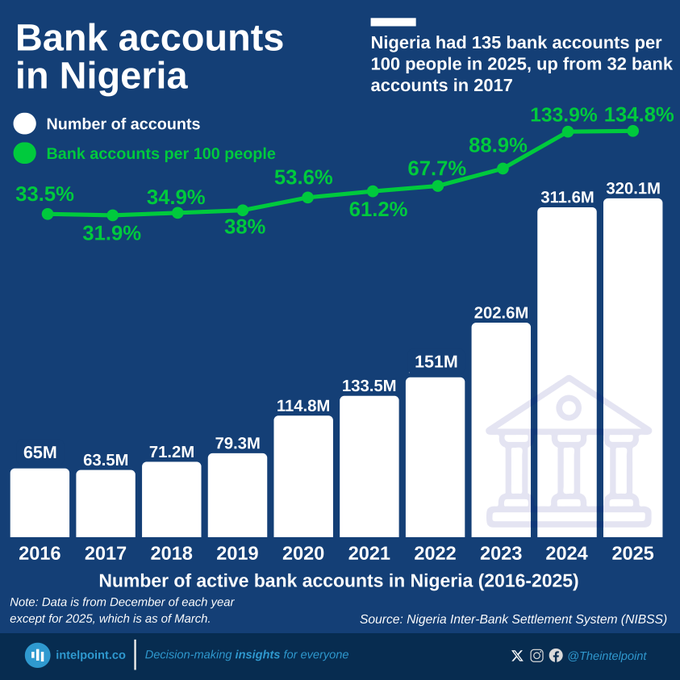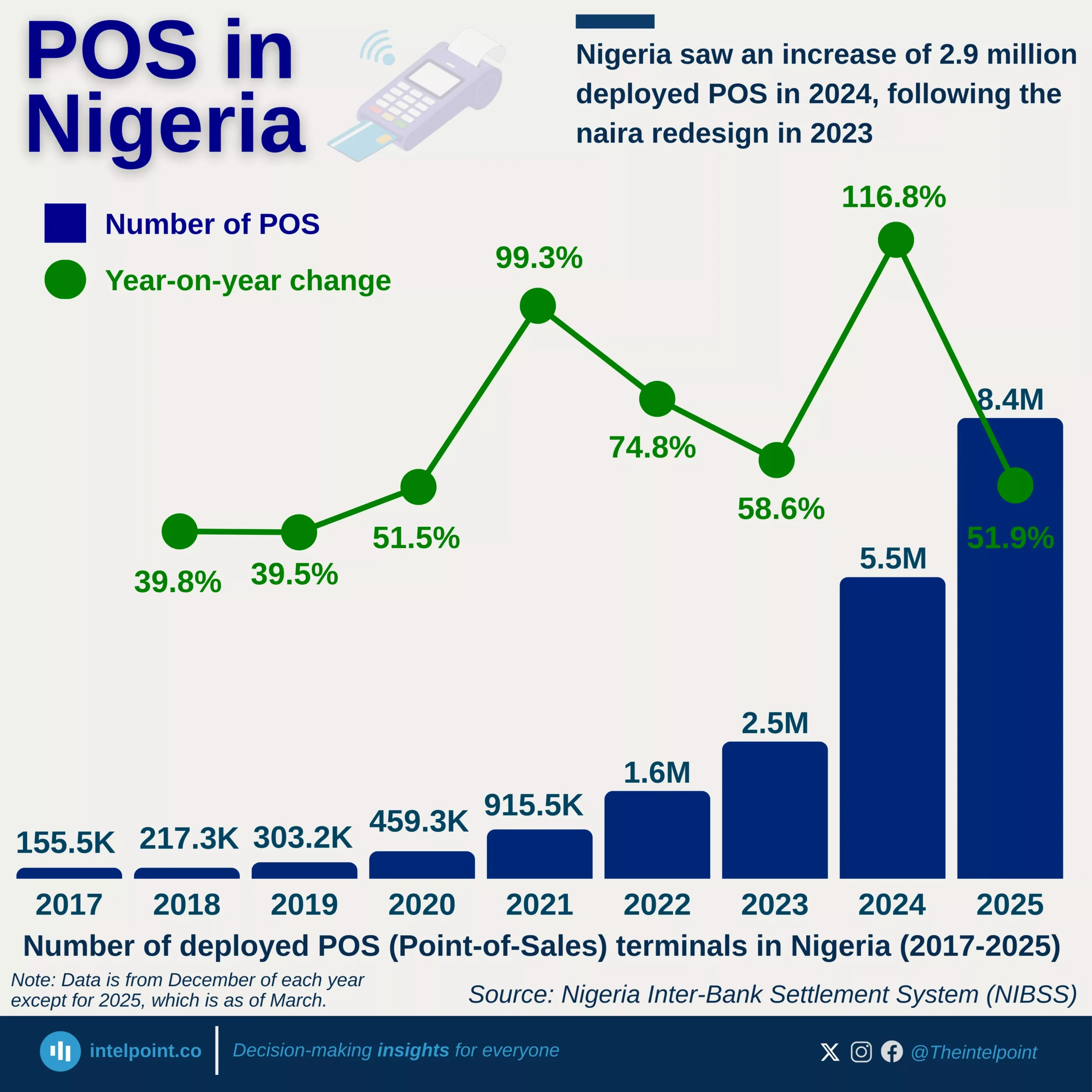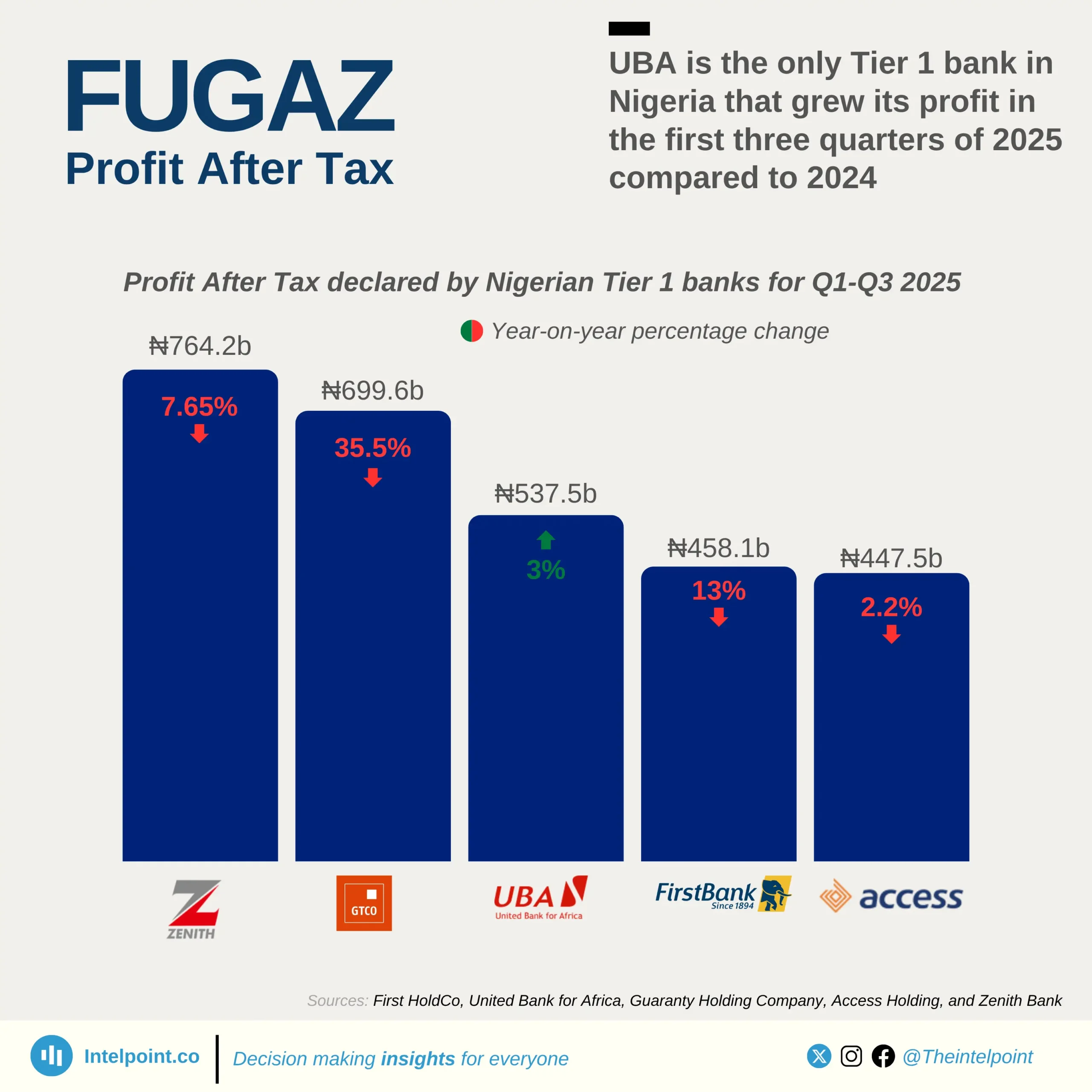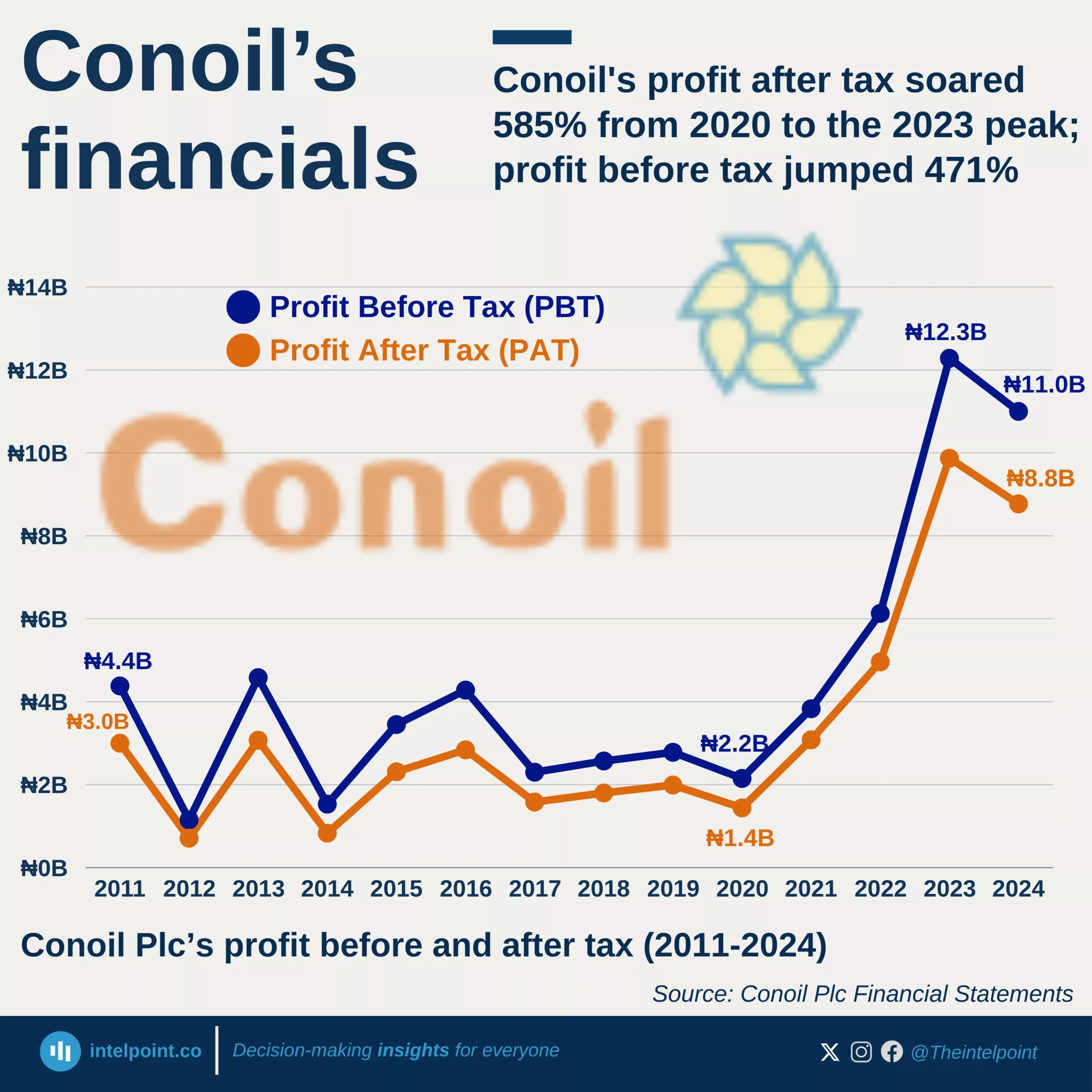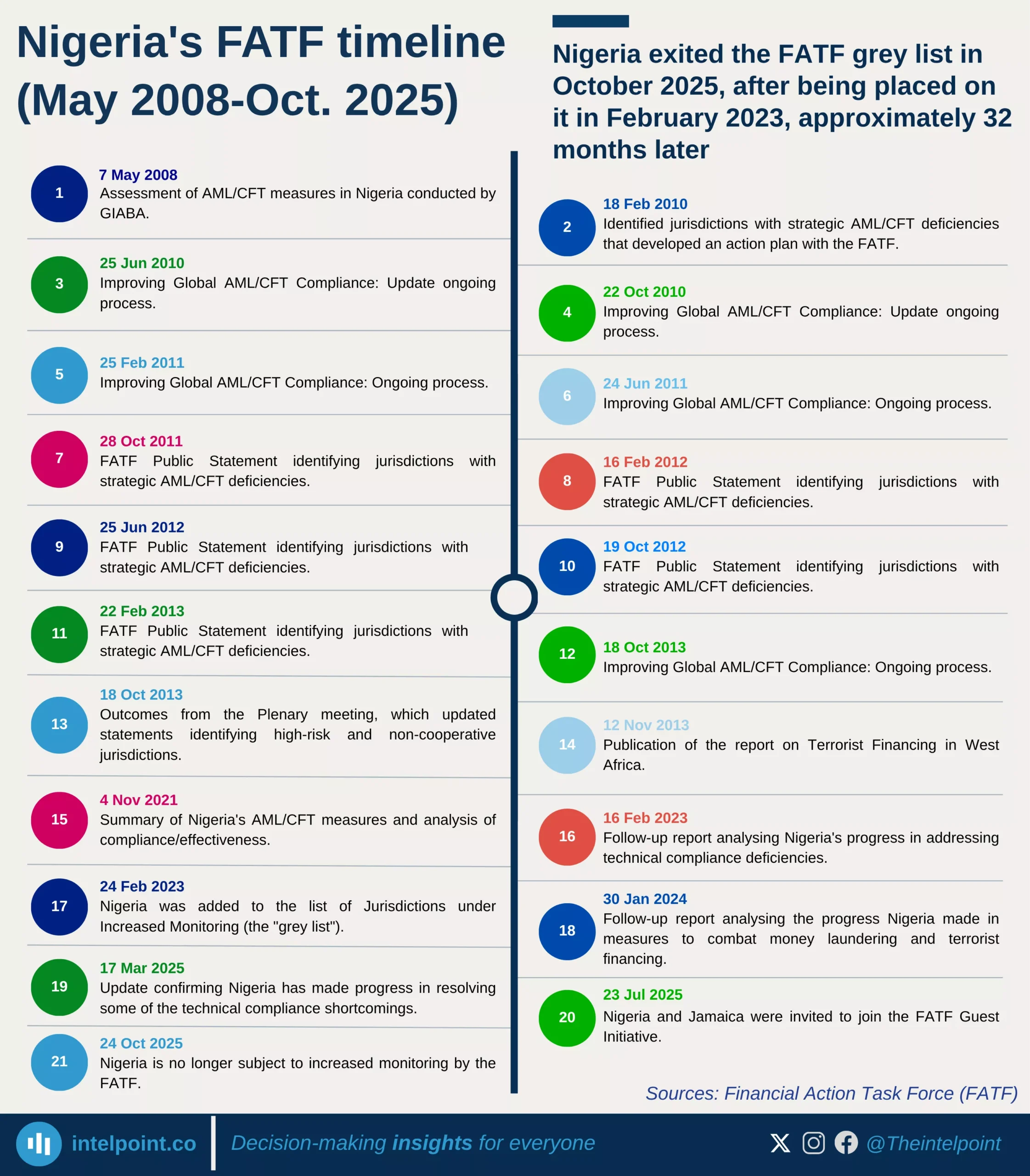After tax, 12 NGX-listed Nigerian banks retained 10% - 45% of their respective revenues for the year as profit, with GTCO in the lead.
Despite Zenith Bank leading in profit after tax with nearly ₦677 billion, GTCO recorded the highest profit margin, keeping 45% of its revenue.
Here are Nigerian banks' profit margins in 2023.
